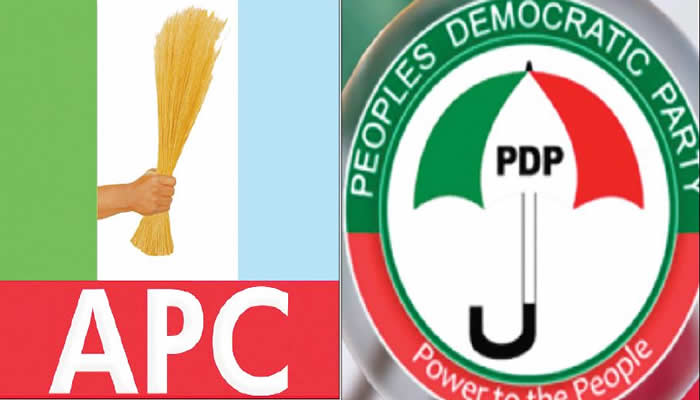The political landscape of Osun State, Nigeria, has been embroiled in a bitter feud between the ruling Peoples Democratic Party (PDP) and the opposition All Progressives Congress (APC) over control of local government administrations. This power struggle has resulted in a three-month shutdown of local government secretariats, crippling essential services and impacting the lives of ordinary citizens. The catalyst for this impasse was a directive issued by the Osun State President of the Nigeria Union of Local Government Employees (NULGE), Dr. Nathaniel Ogungbangbe, instructing workers to stay away from their duties amidst the escalating political tensions. The resulting administrative vacuum has left local governance in disarray, with both parties trading accusations of culpability.
At the heart of the dispute lies the control of local government secretariats. Following a court ruling reinstating APC-backed chairmen, these officials assumed control of the secretariats, but their authority has been undermined by the absence of civil servants who remain on strike. The APC accuses Governor Ademola Adeleke of the PDP of orchestrating the strike through a “pliant” NULGE leadership to undermine their control. They allege the governor’s inaction in resolving the crisis demonstrates a failure of leadership, with the state suffering significant revenue losses due to the shutdown. The APC further contends that the PDP’s actions are motivated by a desire to destabilize the state and ultimately force a declaration of a state of emergency, which they believe would allow the PDP to regain control. The APC has called for intervention from the National Assembly and the Presidency to alleviate the suffering of Osun State residents.
The PDP, however, vehemently denies these allegations, placing the blame squarely on the APC. They accuse the opposition party of instigating violence and attempting to exploit the situation for political gain. The PDP asserts that the governor’s decision to temporarily halt operations at the local government level was a necessary protective measure to safeguard lives and property amidst the escalating tensions. They argue that the APC’s call for federal intervention is a desperate attempt to leverage their influence at the national level to circumvent the legitimate governance of the state. The PDP maintains that their actions are aimed at upholding the rule of law and maintaining peace and stability within the state.
The prolonged closure of local government secretariats has severely impacted the delivery of essential services to residents. Basic administrative functions, such as the issuance of certificates and licenses, have been disrupted. Furthermore, the absence of local government administration has hindered development projects and community initiatives, further exacerbating the challenges faced by local communities. This administrative paralysis has forced many residents to seek essential services in neighboring states, highlighting the severity of the disruption caused by the political standoff. The lack of functioning local governments has created a vacuum in service delivery, leaving citizens stranded and further fueling the ongoing political tensions.
The stalemate has created a sense of uncertainty and apprehension among the residents of Osun State. The prolonged disruption of local governance has undermined public trust in government institutions and fueled anxieties about the future. The economic repercussions of the shutdown are also being felt, with businesses and individuals suffering losses due to the disruption of commercial activities and the lack of access to essential services. This pervasive uncertainty is impacting daily life, hindering development and exacerbating existing socio-economic challenges.
The ongoing crisis in Osun State underscores the fragility of democratic institutions and the importance of upholding the rule of law. The power struggle between the APC and the PDP has paralyzed local governance, highlighting the need for political actors to prioritize the well-being of citizens over partisan interests. A lasting resolution to this impasse requires dialogue, compromise, and a commitment from all stakeholders to uphold the principles of good governance and accountability. The future of Osun State hinges on the ability of its political leaders to find common ground and work together to restore stability and ensure the effective delivery of essential services to the people. Failure to do so will only further erode public trust and deepen the existing divisions within the state.














